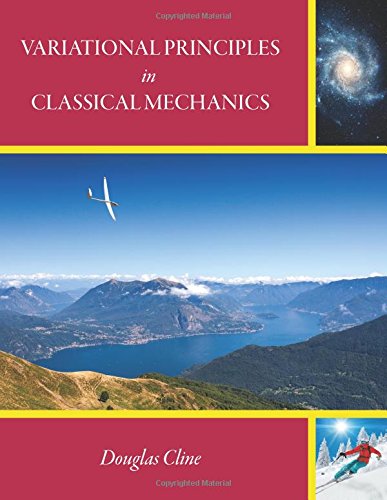
Variational Principles in Classical Mechanics
by Douglas Cline
Publisher: River Campus Libraries 2017
ISBN/ASIN: 0998837253
ISBN-13: 9780998837253
Number of pages: 587
Description:
This book introduces variational principles, and illustrates the intellectual beauty, the remarkable power, and the broad scope, of applying variational principles to classical mechanics. Applications presented cover a wide variety of topics, as well as extensions to accommodate relativistic mechanics, and quantum theory.
Download or read it online for free here:
Download link
(6.9MB, PDF)
Similar books
 Introduction to Continuum Mechanics for Engineers
Introduction to Continuum Mechanics for Engineersby Ray M. Bowen - Springer
This textbook is an introduction to the essentials of modern Continuum Mechanics for engineering graduate students. The book is self contained and suitable for self study. It establishes certain classical continuum models within a modern framework.
(20010 views)
 Structure and Interpretation of Classical Mechanics
Structure and Interpretation of Classical Mechanicsby Gerald Jay Sussman, Jack Wisdom - The MIT Press
The book emphasizes the development of general tools to support the analysis of nonlinear Hamiltonian systems. Explorations of transitions to chaos, nonlinear resonances, and resonance overlap to help the student to develop tools for understanding.
(16164 views)
 Classical Mechanics
Classical Mechanicsby Robert L. Dewar - The Australian National University
We develop a more abstract viewpoint in which one thinks of the dynamics of a system described by a number of generalized coordinates, but in which the dynamics can be encapsulated in a single scalar function: the Lagrangian or the Hamiltonian.
(15147 views)
 Classical Mechanics
Classical Mechanics- Wikibooks
Classical mechanics is the study of the motion of bodies based upon Isaac Newton's famous laws of mechanics. The reader should be comfortable with basic physics concepts. Familiarity with geometry, algebra, and calculus is a must.
(18886 views)